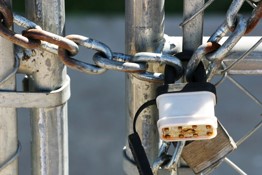Table of Contents
Closing a company in Hong Kong
There are many reasons why a business can fail to obtain the desired results and encounter financial difficulties that can determine its owners to close the business altogether. Company liquidation in Hong Kong takes place when companies can no longer pay their debts or are faced with other situations that make this step necessary.
The decision to close a company in Hong Kong ca be made with the help of professional consultants. Our law firm in Hong Kong can offer you specialized counselling before and during the company liquidation procedure.
The two types of liquidation are described in the following video:
Company de-registration in Hong Kong
A company in Hong Kong can be de-registered if it fulfils certain conditions. This is a more simple procedure to close the company, compared to the liquidation or winding-up. A company can be de-registered if all of its members agree that this is the necessary step. Moreover, the company must not have any outstanding liabilities.
Another requirement for de-registration is that the company has never started any business operations or it ceased to perform any business operations 3 months before commencing the de-registration procedure. Also, the company owners must have decided not to resume business in the future. In order to de-register a company an application must be made to the Companies Registry. Our lawyers in Hong Kong can help you fill out the necessary forms and submit the necessary documents for de-registration.
Winding up a company in Hong Kong
During the winding up procedure, the company’s assets are used to repay its debts and satisfy the claims of its creditors. Winding up can be voluntarily or compulsory.
The voluntary company winding up in Hong Kong can be commenced by the company members or by the company’s creditors. In order to commence a voluntarily company liquidation, a special director’s meeting has to take place during which the company directors agree upon the liquidation and appoint a liquidator to carry out the process. The company directors must draw up a Declaration of Solvency and submit it to the Companies Registry. If the company is unable to make the Declaration of Solvency, then a creditor’s voluntarily winding up takes place. In this case, the creditors will be those to appoint a liquidator.
The compulsory winding up of a company in Hong Kong takes place when the High Court of the Hong Kong Special Administrative Region decides to wind up the company. The most common circumstances in which this is decided are:
– the company cannot pay a debt of 10,000 HDK or more;
– the Court believes that the company should be wound up;
– the company has made a special resolution that stipulates this action.
Whatever the case and regardless of the liquidation method, our Hong Kong law firm can guide you throughout the process and offer you the necessary legal assistance. Please contact our attorneys in Hong Kong if you want to know more about closing a company.

